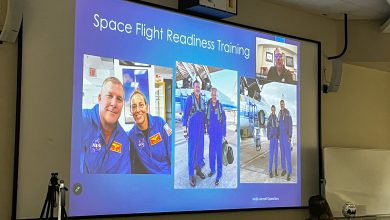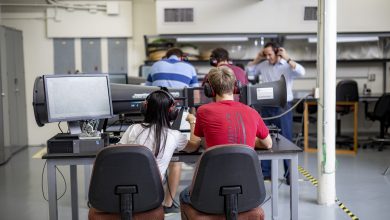NASA Awards Researcher $110,000 Grant
MELBOURNE, FLA. — Ming Zhang, Florida Tech professor of physics and space sciences, has earned $110,000 in first-year funding from NASA headquarters for
studies of our solar system using measurements from Voyager 1 and Voyager 2 spacecraft. Florida Tech scientists are working closely with Voyager instrument
team members from Massachusetts Institute of Technology, California Institute of Technology and Johns Hopkins University Applied Physics Laboratory to
investigate the structure and dynamics of the heliosheath.
At a distance of 101 Astronomical Units (9.5 billion miles) from Earth, Voyager 1 is now exploring the heliosheath, the final frontier of the solar system.
In this layer, solar wind particles are slowed and turned around by the flow of local interstellar medium.
“Data returned from the Voyagers show many surprises,” said Zhang. “For example, we expected to find at the termination shock (a boundary where the solar
wind slows down abruptly) the source of anomalous cosmic rays that are seen at Earth as helium and oxygen radiation in the energy band between a few tens
to a few hundreds Mega electron volts. However, we didn’t find that when Voyager 1 got there. Another surprise is that the solar wind flow immediately
behind the termination shock is moving at almost-zero speed.”
The ultimate goal of the project is to understand how the solar system interacts with the interstellar medium of the galaxy. This knowledge will help to
understand the history of the near-Earth space radiation environment and to predict its long-term future, a problem related to space weather forecasting.




